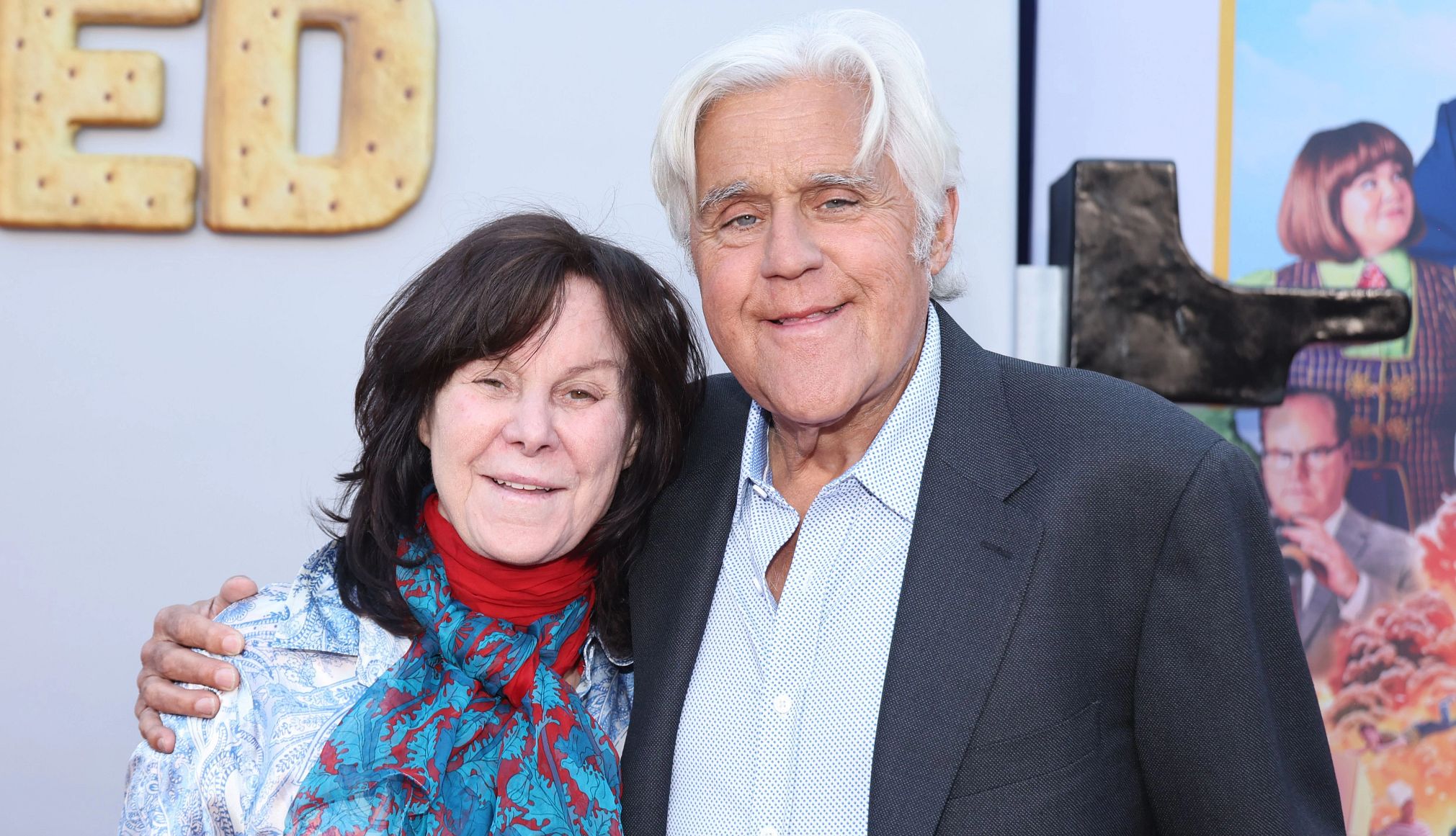AARP Hearing Center


It is one thing to be a caregiver. It is something else entirely to be a caregiver for your spouse.
Just ask Jay Leno. The former Tonight Show host discussed his new role as caregiver for his wife of 45 years, Mavis, at length on the In Depth with Graham Bensinger podcast.
The comedian, 74, filed for conservatorship over his wife in January 2024, following a dementia diagnosis.
“When you get married, you sort of take a vow: ‘Will I live up to this? Or will I be, like, a sleazy guy [where] if something happens to my wife, I’m out banging the cashier at the mini mart?'” Leno said to Bensinger. “No, I didn’t. I enjoy the time with my wife. I go home, I cook dinner for her, watch TV, and it’s OK.”
Leno described how he has taken over many activities of daily living for his wife. “When you have to feed someone and change them and carry them to the bathroom and do all that kind of stuff every day. It’s a challenge,” he said. “And it’s not that I enjoy doing it, but I guess I enjoy doing it.”
The Jay Leno’s Garage star noted that he and Mavis, 78, now use flash cards to review memories together.
“It’s kind of fun,” he said. “I go, ‘Honey, that’s President Obama. Remember we had dinner?’ [She’ll say], ‘Oh, not me.’ [And I’ll say], ‘Yeah, honey, that was you!'”
AARP asked four national experts in spousal caregiving to offer their personal insight into the 11 critical things that every wife or husband should know before taking on the Herculean task of becoming a caregiver for their spouse.
1. You committed to this the day you got married.
Caregiving for a spouse was a choice you made the day you took your wedding vows, says Peter Rosenberger, who, at age 61, has been caregiving for his spouse for almost four decades. His wife, Gracie, was seriously injured in a car accident just a few years before they married, and she has faced 86 surgeries and, ultimately, the amputation of her legs below the knee.
“What’s the point of marrying if you don’t know if you’ll care for them later on?” poses Rosenberger, who has authored several books on caregiving, including Hope for the Caregiver: Encouraging Words to Strengthen Your Spirit and A Minute for Caregivers: When Every Day Feels Like Monday. “Don’t think you’re up to caregiving because you’re not,” he says. “But you can grow into it.”
No one “chooses” to be a spousal caregiver, adds Samantha Culler, clinical director of the memory counseling program at Atrium Health Wake Forest Baptist Medical Center in Winston-Salem, North Carolina. “Most are thrust into it.”
She compares it to learning to swim while you’re drowning. So, in the end, caregiving for a spouse is typically not a question of whether or not you do it, she says, but how you do it.
2. Create a Plan B in case something happens to you.
“We are all one ankle sprain from this turning into a Greek tragedy,” says Rosenberger. That’s why it’s so critical to think ahead and plan who will replace you, short-term or long-term, if and when you are no longer up to the job.
“You can’t plan for every contingency,” he says, but you’re much better equipped to pivot by doing some advance planning.

































































More From AARP
What to Tell Grandkids When a Grandparent Has Dementia
These strategies can help you explain what is going on to children of all ages
The Staggering Financial Toll of Family Caregiving
Caring for an aging parent can be rewarding but also can drain your finances
10 Common Mistakes That Family Caregivers Make
Experts share how to avoid these caregiving pitfalls